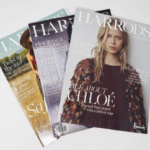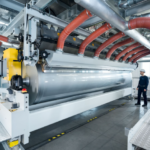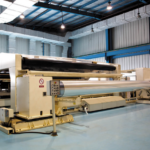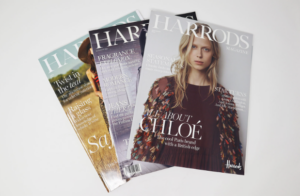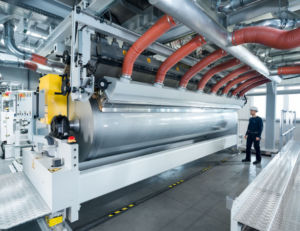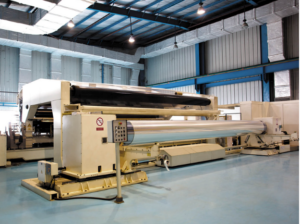Aluminum foil is a crucial component in laminates which has a wide range of applications in food packaging. It has a higher protective barrier against the transmission of humidity, oxygen, and other gases, volatile aromas, and the influence of light than any other plastic laminate material. As a result, aluminum foil is utilized in laminates whenever inadequate barrier qualities restrict the durability of food. Aluminum-coated packaging that could substitute aluminum foil sheets has less efficient barrier qualities. Aluminum foil used in rigorous, semirigid, and flexible packages in thermal processing enables the selection of package designs that assure quick heating and minimal heat degradation during processing. Mechanical stability and sealing quality are crucial in terms of package tightness. The meal’s composition determines the durability of foil in food contact. Aluminum in product packaging is regarded safe based on current toxicological understanding, and internal of the foil is advised in particular instances.
China Aluminum Foil is a suitable alternative for food packaging because of its better reusability and unique features for product branding compared to other materials such as plastics and glass – it is infinitely recyclable compared to paper and plastic, including lightweight and sturdier than glass. It is one of the most malleable and adaptable elements on the planet. It is simple to form, robust and resilient to organic compounds, and a suitable transporter of heat and electricity. It’s perhaps one of the most abundant elements in the Earth’s crust. Thus it’s readily available. Below are a few reasons why aluminum is an excellent choice for versatile food packaging.
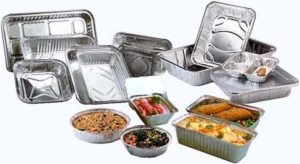
1. Accessibility
Aluminum is the most abundant and the third most abundant substance in the Earth’s crust. This statement implies a plentiful supply of aluminum available for mining for industrial purposes such as food packaging, candy, or home care items. In Europe, around 860,000 tons of aluminum alloys are generated each year.
2. Lifespan
Even if no maintenance is performed, aluminum packaging can retain its integrity for extended periods. It is corrosion-resistant, which adds to its durability. As a result, aluminum is an excellent material for food packaging since it will safeguard a product for the period of its shelf life without the threat of degrading, which would damage the shield between both the food and outside external changes.
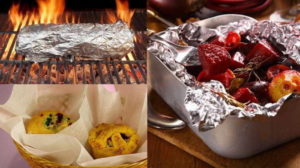
3. Long-Term Environmental Sustainability
Aluminum can be recycled indefinitely, and its recycling process saves a large amount of energy compared to other materials, spending just 5% of its primary manufacturing energy. This saves a significant amount of energy and reduces manufacturing emissions, making aluminum a cost-effective and ecologically beneficial food packaging material.

4. Adaptability
Aluminum is light and seems to have a low thermal conductivity, yet it is also exceedingly pliable and straightforward to form. Aluminum packaging has a marketing benefit as a result of this. Because of the material’s flexibility can be readily modified with unique forms, engraving, and imprinting for brand recognition and customer appeal. As a result, it’s a popular material for packaged food containers, dairy goods, and even pet food.
5. Extensive Barrier Protection
Even as a fragile foil, aluminum provides perfect protection against humidity, light, and air. This maintains the quality, hygiene, and scent of food goods packaged within it while using relatively little material. Aluminum-packaged foods are resistant to bacterial contamination, oxidation, moisture, and light, all of which can damage product quality.
6. Lightweight
Aluminum is a flexible material that saves transportation costs by loading more items onto trucks than heavier ones. Aluminum may also safeguard the quality of food goods at very thin gauges, reducing the weight of the packing material even more. For example, 1.5g of aluminum foil may preserve one liter of milk for several months while adding only a tiny amount of weight to the product.

With decades of experience in sustainable and creative choices for packaged foods, the pharmaceutical sector, confectionery, or home care items, King Chuan Packaging is one of the world’s pioneers in flexible packaging and aluminum foil manufacturer. The business has evolved from a manufacturer with a robust local emphasis into a worldwide player in the world’s most appealing and fastest-growing flexible packaging areas. King Chuan Packaging is synonymous with premium location, cutting-edge technology, customer closeness, and highly efficient manufacturing facilities. It accounts for 70% of its total revenues and is a worldwide player with operations in Europe, Russia, the United States, Mexico, and India.
Aluminum is a precious metal that is in high demand in the packing industry worldwide in the twenty-first century. The containers serve a variety of functions, including food packing. Aluminum foil containers and packaging are widely utilized in the food business due to their qualities. They are the ideal takeout and work as a delivery service partnership to hotels, cafés, and restaurants worldwide. They are manufactured utilizing quality, food-grade aluminum packaging. “Aluminum foil is superior to no other insulators at all, and even the best insulator. Aluminum foil works best when it creates a quiet gap over (around) the food item,” explains the food manufacturing engineer. “One of my favorite methods is to wrap a dish with foil and then add a kitchen towel on top of it to increase the protective further.” This method works well if you need to maintain anything at a steady temperature while it’s on the surface, not long before serving. Therefore you should choose aluminum foil for your business to get the best response.

